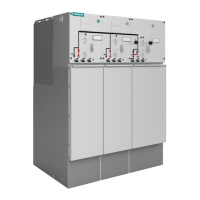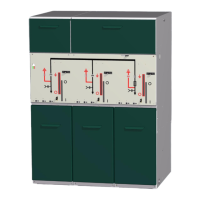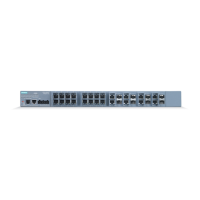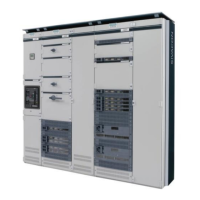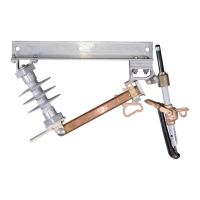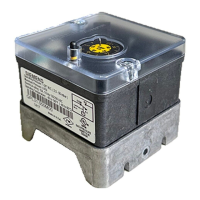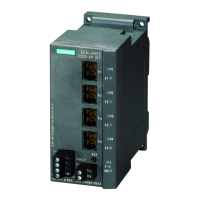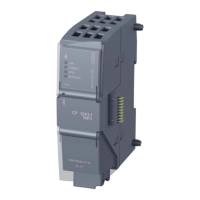Description
20 Revision 03 * INSTALLATION AND OPERATING INSTRUCTIONS 8DJH * 500-8067.9
Secondary equipment of the vacuum circuit-breaker type 2
Secondary components The scope of the secondary equipment of the vacuum circuit-breaker depends on the
type of application.
Motor operating
mechanism (option)
Operating voltages for motor operating mechanisms (circuit-breaker and disconnector)
• 24, 48, 60, 110, 220 V DC
• 110 and 230 V AC 50/60 Hz
• Power consumption: 80 W for AC and DC
Closing solenoid (option) • For electrical closing (coil voltage is coupled with motor voltage)
Shunt release (option) • Magnet coil
• Magnet coil with energy store
• Tripping by protection relay or electrical actuation
C.t.-operated release
(option)
• For tripping pulse 0.1 Ws in conjunction with suitable protection systems,
e.g. protection system 7SJ45, SEG WIC; other designs on request
• Used if external auxiliary voltage is missing, tripping via protection relay
Low-energy magnetic
release (option)
• For tripping pulse 0.01 Ws, tripping via transformer monitor (IKI-30)
Undervoltage release
(option)
• Comprising:
- Energy store and unlatching mechanism
- Electromagnetic system, which is permanently connected to voltage while
the vacuum circuit-breaker is closed; tripping is initiated when this voltage drops
• Connection to voltage transformers possible
Circuit-breaker
tripping signal (option)
• For electrical signaling (as pulse ≥ 10ms), e.g. to remote control systems, in the case
of automatic tripping (e.g. protection)
• Via auxiliary switch
Varistor module • Integrated in the releases for voltages > 60 V DC
Sequence 1 2 3 4
Operation Charging the
springs
Switch position OPEN OPEN CLOSED OPEN
Position indicator
"Spring charged" indicator
Closing spring not charged charged not charged not charged
Opening spring not charged charged charged not charged
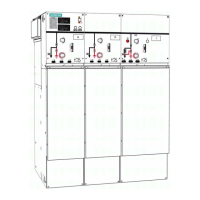
